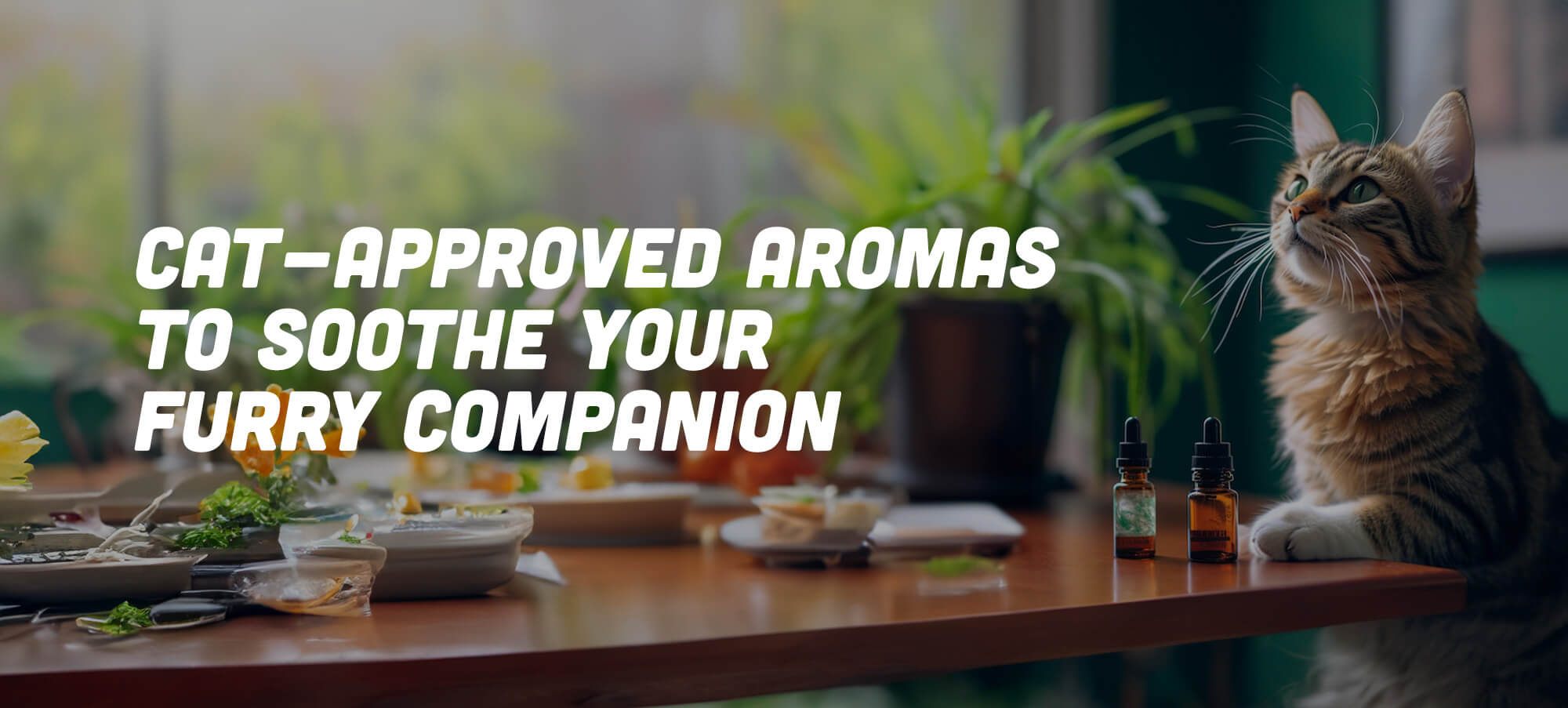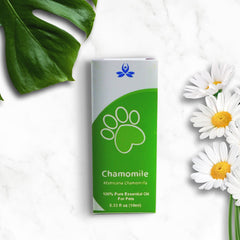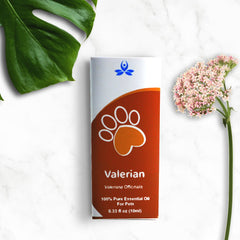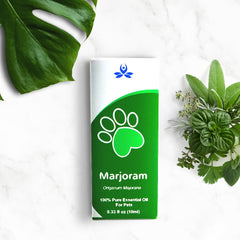
A Purr-fect Guide to Essential Oils Safe for Cats
Cats, with their mysterious and independent nature, have been cherished companions to humans for centuries. As pet owners, it's only natural to seek holistic approaches to enhance their well-being. Essential oils, derived from aromatic plants, have gained popularity in recent years for their potential therapeutic benefits. However, when it comes to feline friends, it's crucial to approach the use of essential oils with caution and knowledge. In this blog post, we'll explore the world of essential oils safe for cats, delving into their potential benefits, safety guidelines, and specific oils to consider.
Understanding the Sensitivity of Cats:
Cats are unique creatures with a highly developed sense of smell and sensitive physiology. Before incorporating essential oils into your cat's routine, it's important to recognize that cats have a heightened sensitivity to certain compounds found in essential oils. Cats lack a crucial liver enzyme called Glucuronyl transferase, which plays a role in metabolizing and eliminating certain substances from the body. This makes them more susceptible to toxicity from certain essential oils. Some essential oils are considered safe for cats in moderation, while others should be avoided entirely.
What essential oils are bad for cats
As a responsible pet parent, it's essential to know which essential oils can pose risks to your feline companions. Tea tree oil, in particular, is highly dangerous for cats, potentially causing skin irritation and toxicity if ingested. To keep your furry friends safe and healthy, avoid using the following essential oils around cats:
- Tea tree, peppermint, thyme, spearmint, rosemary, nutmeg, wintergreen, eucalyptus
- Citrus Oils like Bergamot, grapefruit, lemon, lime, orange, tangerine
- Oils derived from Spices and Herbs like Birch, cinnamon, clove, dill, fennel, oregano, basil
By steering clear of these oils, you can help ensure your cat's well-being and prevent any adverse effects.
Cat safe Essential Oils
Here is a table of pet essential oils that are generally considered safe for cats. It is important to choose only mild and diluted pet-friendly versions of these essential oils. Our Pet Essential oils are mild and specially formulated for use around pets.

Safe Scents in Practice:
Now, how do we tap into the benefits of essential oils safe for cats without putting our furballs at risk?
Here's the essential oil etiquette for felines.
Always dilute!
The recommended dilution ratio for cats is extremely low, typically around 0.1% to 0.5% essential oil in carrier oil. This means using only one or two drops of essential oil per ounce of carrier oil.
Diffusing is best:
Use a cool mist diffuser in a well-ventilated room for very short periods. Monitor your cat for any discomfort.
Never apply directly:
Topical application is a no-go. Oils can be absorbed through their skin, posing a poisoning risk.
Indirect Application :
Apply diluted oils to bedding, collar, or a blanket rather than directly on the cat.
Keep it out of reach:
Store oils securely, away from curious paws and playful pounces.
Best Carrier Oil for Cats:
Choose a safe carrier oil like jojoba oil or coconut oil.
Jojoba oil, closely mimicking cats' natural skin oils, is the gold standard for diluting essential oils for felines.
Benefits Beyond Fragrance:
Beyond enchanting your home with calming aromas, essential oils when used correctly, offer a trove of benefits for your feline friend:
Calming Atmosphere:
Essential oils like lavender and chamomile can help create a soothing environment that can soothe anxious kitties, promoting calmness and well-being.
Anxiety Reduction:
During travel or vet visits, the familiar scent of calming essential oils can reduce nervousness and have a reassuring effect on your cat. It can help ease your cat's anxiety in unfamiliar settings.
Insect Repellent:
Oils such as cedarwood can act as natural insect repellents, helping to keep pests like fleas and ticks away from your feline friend.
Behavioral Support:
Oils like valerian can help manage behavioral issues such as excessive scratching, pacing, or meowing, promoting a more balanced and calm behavior in cats.
Final Purrs and Pawprints
Remember, cat safety is paramount. Consult your veterinarian before introducing cat safe essential oils into your feline's world. Observe your kitty closely for any reactions, and never hesitate to discontinue use if any discomfort arises. With caution and proper guidance, essential oils can add a touch of tranquility and holistic goodness to you and your cat's life, transforming your home into a purr-fect sanctuary for both of you.
Now here are some bonus tips for you.
How to make a Herbal Flea Collar :
Make a natural flea collar by adding a few drops of diluted essential oils like lavender or cedarwood to a regular collar. Ensure the oils are safe for cats and used in minimal amounts.
Start with the mildest or the gentlest of oils like pet cedarwood oil, pet chamomile oil or pet lavender oil and observe your cat's response before venturing into other scents.
Go forth, and explore the wondrous world of essential oils safe for cats, but always prioritize your cat's well-being above all else. Happy sniffing!
Frequently asked questions
-
Which pet-safe essential oil can be diffused to keep fleas and insects away?
Cedarwood oil is a pet-safe option that can help repel fleas and insects when diffused.
-
Is eucalyptus safe for cats?
No, eucalyptus oil is not safe for cats and can be toxic to them.
-
Is peppermint safe for cats?
No, peppermint oil is not safe for cats and can cause adverse reactions.
-
What essential oils are safe for cats?
Pet-safe essential oils for cats include lavender, chamomile, cedarwood, frankincense, marjoram, and valerian.
-
Is rosemary safe for cats?
No, rosemary oil is not considered safe for cats and can be harmful.
-
Is cinnamon toxic to cats?
Yes, cinnamon oil is toxic to cats and should be avoided.
-
Is tea tree oil safe for cats?
No, tea tree oil is not safe for cats and can be highly toxic.
-
Is lavender oil safe for cats?
Yes, lavender oil is generally considered safe for cats when used appropriately and in moderation.
-
Is lemongrass safe for cats?
No, lemongrass oil is not safe for cats and can cause digestive issues and other health problems.
















Leave a comment
This site is protected by hCaptcha and the hCaptcha Privacy Policy and Terms of Service apply.